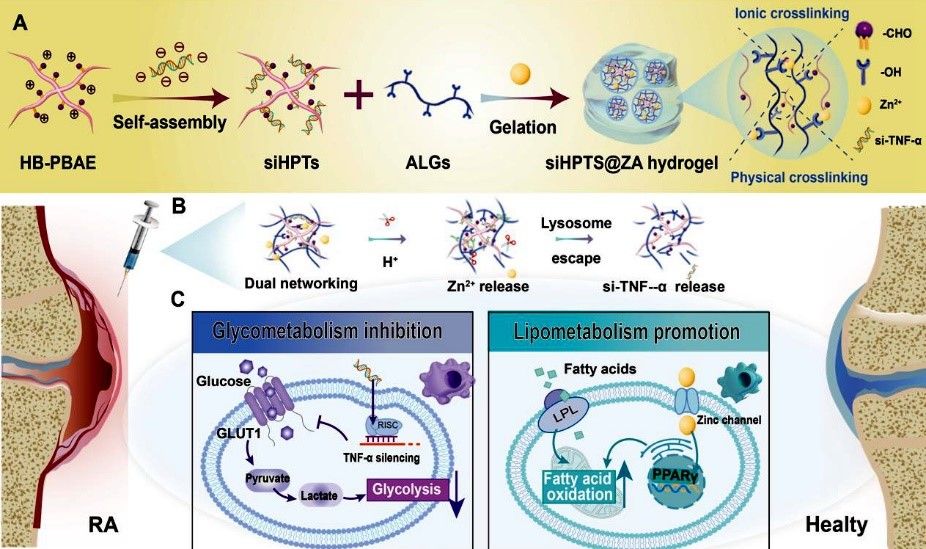Tianjin University Develops Novel Hydrogel to Combat Rheumatoid Arthritis
Rheumatoid arthritis (RA) is a painful and relentless chronic disease, often described as the "lifelong battle." It not only causes persistent joint pain but can also lead to deformities and disabilities, making everyday life a struggle for millions of people. Researchers at Tianjin University have recently achieved a groundbreaking discovery that could revolutionize the treatment of RA. A team led by Professor Li Nan from the School of Pharmaceutical Science and Technology has developed a new type of injectable hydrogel that can regulate immune cell metabolism, helping to reduce inflammation and slow down the disease. Their findings were recently published in the international journal Advanced Functional Materials.
RA occurs when the body’s immune system mistakenly attacks healthy joints, leading to inflammation and damage. Scientists have discovered that a key factor in this process is the metabolism of immune cells—particularly macrophages. When these cells’ metabolic pathways go off balance, they release excessive inflammatory signals that worsen the disease. If this metabolism could be controlled, it might open up a new way to treat RA.

Schematic of how the novel hydrogel regulates macrophage metabolism to treat arthritis
This is precisely what the Tianjin University team has accomplished. Their novel hydrogel is made from biodegradable alginate and has a special dual-network structure, making it easy to inject and allowing for controlled release of therapeutic agents. Once inside the joint, the hydrogel reacts to the acidic environment of the inflamed area, gradually releasing zinc ions and small interfering RNA.
These substances help “reprogram” the macrophages’ metabolism, reducing their ability to trigger inflammation and enhancing their anti-inflammatory function. In simple terms, the hydrogel helps restore balance to the immune system, easing the symptoms of RA in a precise and effective way.
The project received funding from multiple sources. Song Yutong, a master’s student from the Class of 2022 at Tianjin University, is the first author of the paper, with Professor Li Nan as the corresponding author.
"This is the first time metabolic reprogramming has been used in RA treatment, and we hope it can be applied to other inflammatory diseases in the future," said Professor Li. "Our goal is to provide not just a more effective treatment for RA, but also to explore new ways of tackling inflammation-related conditions at the metabolic level."
This innovative hydrogel brings new hope to RA patients, offering a potential game-changer in the fight against this challenging disease.
By Qin Mian

